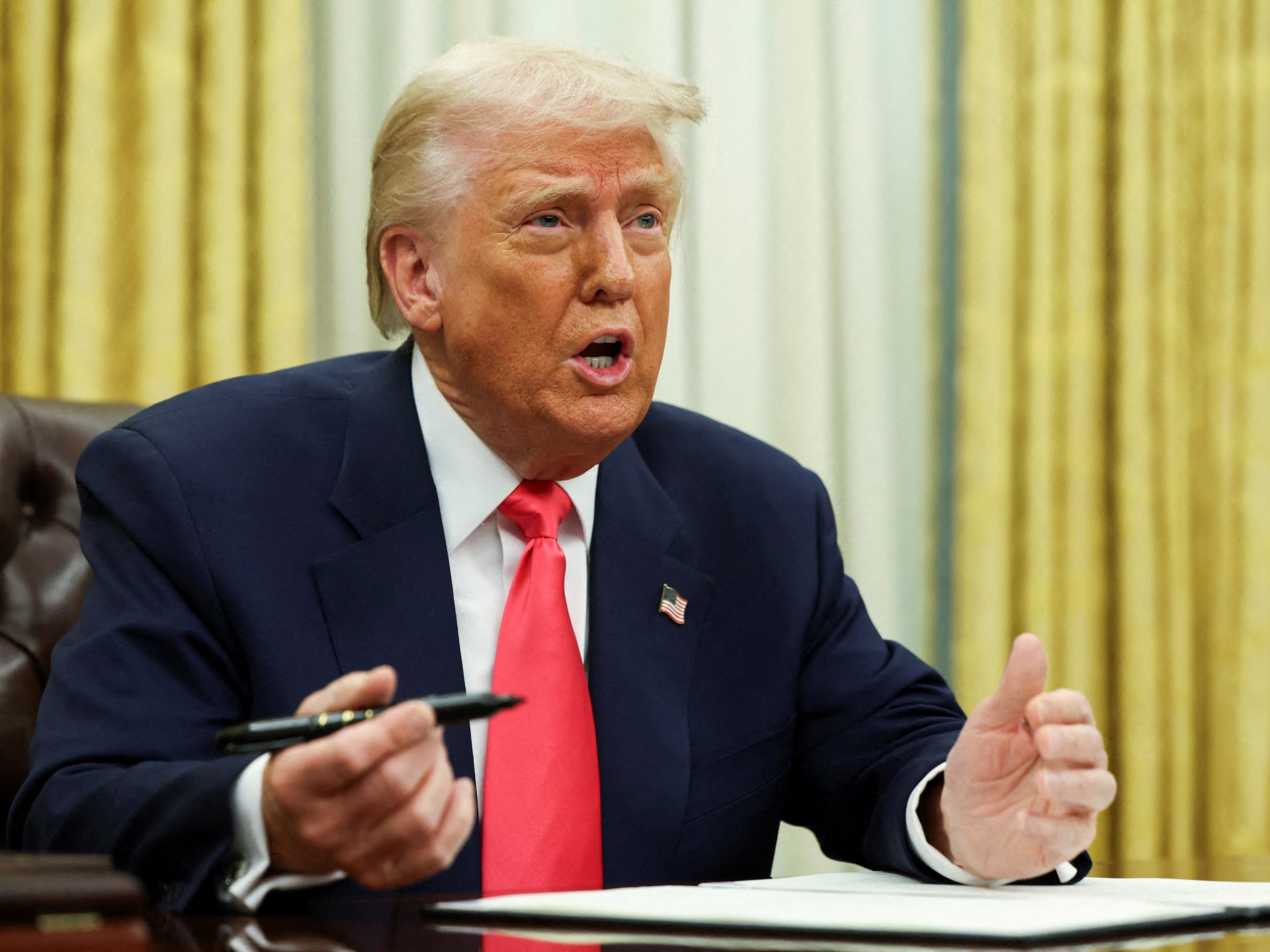Concerned that President Donald Trump’s sweeping tariffs, which have sparked a trade war, will raise prices and undercut the economy, consumer sentiment in the United States has fallen to a nearly two-and-a-half-year low, and inflation expectations have soared.
Consumers said “frequent gyrations in economic policies make it very difficult for consumers to plan for the future” and that the University of Michigan Surveys of Consumers on Friday reported a decline in consumer sentiment in March and inflation expectations across political party affiliations.
That echoes questions posed in some business surveys. Trump’s on-again, off-again tariffs and an increase in trade tensions could derail an economy’s expansion due to the uncertainty created by them. Federal Reserve officials must face difficulties as they consider the next steps in monetary policy as a result of fears of higher prices, which increased consumers’ long-term inflation expectations to levels last seen in early 1993.
The verdict has been rendered, and the jury is back. Trump’s 2.0 policies are harming the country’s economy and its prosperity, according to Christopher Rupkey, chief economist at FWDBONDS. Despite Washington’s assurances that trade tariffs are beneficial for the economy, the consumer is afraid and anticipates significantly higher prices ahead.
Consumer Sentiment Index, which was 64.7 in February, was down to 57.9, the lowest reading since November 2022, according to the University of Michigan. The index was predicted to decline to 63.1 according to a poll conducted by the Reuters news agency.
All gains made following Trump’s victory in November have been wiped out by the index.
The decline in sentiment this month was a result of a decline in future expectations for the economy, which included those for employment, inflation, business, and stock markets.
Republicans’ expectations index decreased by 10%, while independents decreased by 12%. Democrats’ spending decreased by 24%.
Surveys of Consumers Director Joanne Hsu stated that “consumers from all three political affiliations are in agreement that the outlook has weakened since February.” “Many consumers cited the high degree of uncertainty surrounding policy and other economic factors.”
whiplash in the tariff
Trump has placed a number of tariffs on a range of goods from important trading partners, including Canada, China, and the European Union, which have added customs duties. Some tariffs have been imposed before being permanently suspended for a month.
Trump threatened on Thursday to impose a 20% tariff on imports of wine, cognac, and other spirits in Europe. Financial markets have been shook by the tariff war’s escalation and selloffs on stock markets, which also contributed to depressing sentiment this month.
Consumers’ 12-month inflation expectations increased from a 4-by-5 forecast in February to 4.9%, which is the highest level since November 2022. Consumers saw inflation increase of 3.9% over the next five years. Compared to the 3.5% reading in February, that was the highest reading since February 1993.
After being hampered in earlier sessions, Wall Street stock prices rose on Friday. A basket of currencies showed little change for the dollar. US Treasury yields increased.
Fed officials meeting next week are expected to leave the benchmark overnight interest rate, which has fallen by 100 basis points since September, as they continue to assess the impact of the Trump administration’s policies on the economy.
Financial markets anticipate that the Fed will resume cutting borrowing costs in June following its easing cycle in January amid a depressing economic outlook. To combat inflation, the policy rate was increased by 5.25 percentage points between 2022 and 2023.
Through tech billionaire Elon Musk’s Department of Government Efficiency, or DOGE, which has cut funding and fired thousands of federal employees, Trump has also launched an unprecedented campaign to drastically shrink the government.
Some of the civil servants’ unions have challenged the layoffs, leading to reinstatements.
A Reuters/Ipsos poll of Americans on Tuesday and Wednesday revealed that 57% of respondents thought Trump’s economic reforms would be too erratic, and 53% thought the tariff war would be worse than positive.










